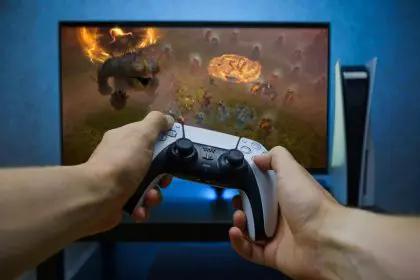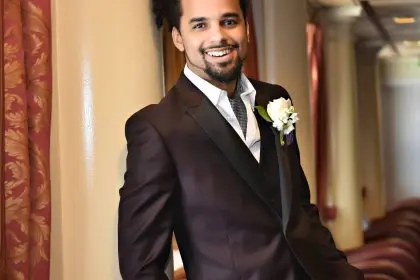In the sleek offices of UELesports in Atlanta, Titus Walker speaks with the measured confidence of someone who has spotted an opportunity others have missed. As founder and CEO of the Ultimate Gamers League, he’s building what he describes as “UFC and gaming having a baby” – a revolutionary platform where gamers compete across multiple genres while developing real-world skills.
A league of their own
The first way Walker is transforming gaming is through accessibility. “Ninety-eight percent of the next generation are gamers,” he explains, leaning forward in his chair. “Having a pinnacle in gaming to reach for becomes the reason to be there.” His league currently boasts franchises in major markets including Los Angeles, New York and Atlanta, with plans to expand to 52 teams, one for each state.
The second transformation comes through inclusivity. Walker draws parallels between gaming’s current state and early hip-hop: “A lot of the access was kind of limited, especially in hip hop, because we didn’t have the means to have a massive studio on every block like we do now.” He sees mobile gaming and other emerging platforms as democratizing forces in an industry that has historically been “predominantly white and Asian.”
Breaking the developer’s paradox
The third revolutionary aspect of Walker’s approach addresses what he calls “the developer’s paradox.” Traditional esports face a unique challenge: the games themselves are owned by developers. “If the game is owned, then how do you create a sport around it?” Walker asks. “For the developer it’s all about profit. But for the sport it’s all about sport, and those are two different things.”
The fourth transformation involves creating relatable stars. “The League is as important as the players,” Walker notes, comparing UELesports’ current moment to the NBA of the 1960s. “It wasn’t the NBA until you had Kareem, Magic and Bird. People don’t fall in love with the League or the organizer. They fall in love with either the team or the players because they can relate to that.”
The opportunity creator
The fifth and perhaps most significant way Walker is reshaping gaming stems from his personal mission. “When I was a kid, I used to always say I just want to create opportunity,” he reflects. This drive comes from watching his father’s unfulfilled ambitions and his own experience in real estate development, where he found himself among the mere “0.1% African American” in the field.
Walker’s vision extends beyond gaming mechanics to life skills. His platform emphasizes capabilities like hand-eye coordination, spatial awareness and pattern recognition – skills he notes are “used in today’s environment in probably about 90% of jobs.”
The future of competition
As UELesports prepares to expand with its tenth season, adding teams in both the United States and Africa, Walker maintains a clear-eyed view of the industry’s trajectory. He’s particularly skeptical of current streaming platforms like Twitch, which he believes are showing signs of decline, “I think that the future of streaming is yet to be found,” he asserts.
The company is taking a significant step by going public through Start Engine, raising a modest $3 million. It’s a move that reflects Walker’s grassroots philosophy, “If we believe in a we in us, in our community, our children, then we can at least participate in an affordable way.”
In the rapidly evolving landscape of competitive gaming, Walker’s approach stands out for its comprehensive vision. He’s not just building another gaming platform but creating an ecosystem where digital athletics serves as a vehicle for broader societal transformation. As he puts it, “The pinnacle of gaming needs to be in every area, so that you can have something to strive for.”
For Walker, the endgame isn’t just about creating professional gamers but about opening doors for a new generation of digital athletes, entrepreneurs and innovators. In doing so, he’s writing a new chapter in the history of competitive sports, one pixel at a time.











